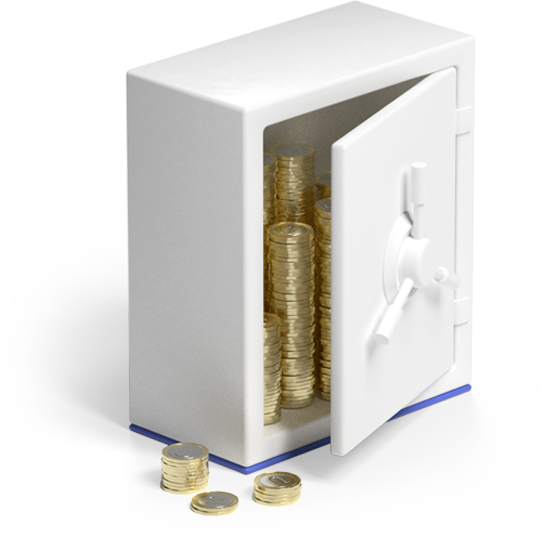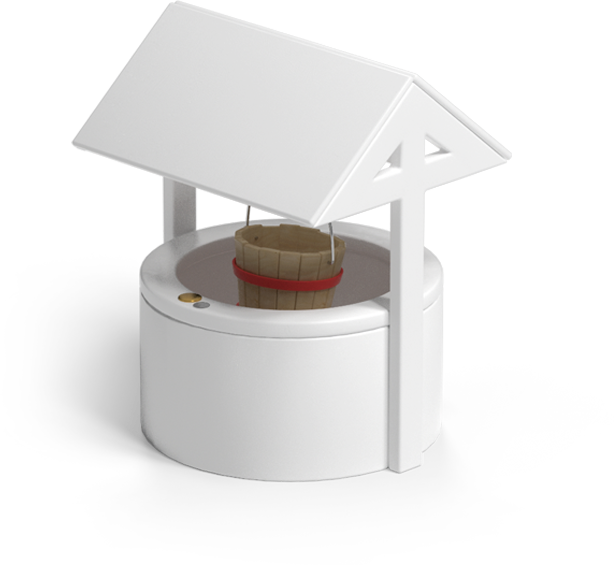How To Flip A House In The UK
Buying and selling property is nothing new, but as a means of specifically making money as opposed to facilitating a place to live, flipping a house is an increasingly popular tactic. If done right it can certainly make you a lot of money very quickly, but like anything in the property business, there is an awful lot to consider.
By Jon Howe6/12/20

Investing in property requires a range of skills, and this is particularly the case with flipping a property. Investing in UOWN reduces the skillset required considerably, as a crowdfunding project is managed by us and your risk and involvement is minimal. If you are planning on flipping a property, however, you are very much on your own, and while that is an attraction to many people, there is no hiding from the fact that it exacerbates the risk involved.
So what is property flipping?
Flipping is far more than simply buying and selling houses for profit. In many respects we all try and do that as we progress through life, even if it is largely passively. Flipping is effectively the concept of buying property low and selling it high.
So far this might sound very attractive, but the reason not everyone is flipping houses left, right and centre, is that there is a very limited market of houses that have the potential to realise profit very quickly. And not only that, those properties that do exist are much sought after.
No time limit puts a constraint on what can be called ‘flipping’, but naturally, the concept of flipping is based around the idea that the buying and selling is done quickly and therefore you make money quickly and move onto the next project.
So we are not talking about making a profit from capital growth and the idea of the market or a location changing over time. This does happen, and you can make long term profit this way, especially if you are smart and invest in a property in a good location, but that is not flipping.
There are a number of reasons why a property might be on the market at a low price, but even if those reasons are resolved, you need to assess whether that will necessarily add value to the property. If a legal issue is preventing a sale, for example, then that can be resolved and the house will sell quickly. But when we talk about flipping a property, we are generally looking at how the property can be physically improved to add value, through structural, integral and cosmetic refurbishment.
The skills required to become a successful property flipper
You might think you are sufficiently savvy to navigate the property market, but flipping houses is a whole new ball game and requires very different skills. In particular you will need:
- Vision – to be able to identify a property that has the potential to realise value very quickly
- Numbers – can you juggle the numbers to make an accurate projection of a property’s potential value and whether that can be realised cost-effectively, bearing in mind the buying price and the various ongoing costs?
- Nerve – can you stick to the plan even if costs are mounting or you are struggling to sell the property?
- Negotiation – can you negotiate a workable buying or selling price to make the project profitable? This might involve a slightly different skill of buying a property at an auction, which is a popular way for cheaper properties to be purchased.
- Project management – quite apart from working out the various costs, you might need to employ contractors and personally manage the property refurbishments, taking into account time limits, costs and standards of work.
What motivates people to flip a property?
Quite simply, the motivation is usually to make money quickly. In that respect, flipping is very enticing and indeed can be hugely lucrative, as opposed to being a buy-to-let landlord where income is more moderate but regular.
There is a lot of hard work and perhaps some nervous moments before you get can land a healthy profit, and of course a flip can quite easily become a flop, so the lure of ‘easy money’ should not be your sole motivation. And if this is your first attempt at investing, you may be better suited to looking at other small investment opportunities that are easier to manage.
Certainly the process of flipping a property is something you can really get stuck into, it can be a highly ‘involved’ process and take up a lot of your time in searching for properties, negotiating a price, dealing with contractors, doing work yourself and then finding a buyer. As outlined above, there are many different skills required, and that challenge in itself is a motivation to some people.
As a natural consequence, this can be a great way to establish a new career and flipping a property allows you to build up a portfolio of properties by releasing cash quickly to enable you to buy another property. This could be to diversify your portfolio, which is something that is always recommended, so you could flip a property to enable you to also enter the buy-to-let market, or you could choose to flip another property if you can find something suitable.
What kind of property is suitable for flipping?
The idea of flipping a property is that not only do you need to sell the property quickly, you also need to sell it at a profit. So it is no good choosing a property that has niche appeal, like a small flat or a trendy loft apartment.
You want to find a property that has the potential to appeal to a wider demographic and which therefore, might open up a bidding war. So a three or four-bedroom semi-detached house may appeal to a family moving to a new area, or a young couple stepping up the property ladder from their first home.
You should also bear in mind that this type of property probably has the most potential to appreciate in value quickly. In other words, a larger house can deteriorate in condition quickly and therefore reduce in value, but can also be improved quickly and therefore increase in value. The price swing with a smaller property will not be as dramatic or lucrative, although that might appeal to a slightly more risk averse or inexperienced ‘flipper’.
Research is key when it comes to flipping houses
In assessing a suitable property you naturally need to know a lot about the locality and the desirability of a property, just like you would for buying any property.
So what is the attraction of the location? What are the schools and transport links like? What local shops are there? Are there any potential planning issues that could devalue the house? Are there any upcoming developments that could improve the value of the house?
You need to consider all these things when buying a property, but when you intend to flip a property, you perhaps want the situation to be pretty stable as you are aiming to turn the house around in two or three months.
This way, you know you are increasing the value of the property simply by refurbishing it and can therefore make your financial projections with a little more certainty.
It is true that houses that are in poor condition but in a good location are few and far between, and hence you are also in competition with other budding flippers with the same intentions as you. Therefore, it pays to really keep your ear to the ground.
Other circumstances might come to light if you speak to local people, ie. there could be another reason why someone wants to sell a property quickly and they could be tempted by a bargain offer. There may have been a death and the family want to sell the property and free up estate assets and cash? Or you may become aware that a property has no chain or a sale has recently fallen through, so you can jump in and make a lower offer to speed things up.
If you are planning on managing much of the refurbishment work yourself then you will need to choose a location close to your own home, otherwise time and money spent travelling becomes counter-productive.
But essentially, you are choosing a property where there is a good balance between the purchase cost, refurbishment costs and selling price. This might sound obvious, but it is a fairly simple equation to consider, albeit lots can change in the meantime and your projections need to be accurate and realistic. Which brings us neatly on to finance.
How do you make money from flipping a property?
Quite simply, if you buy a house for £150,000, spend £20,000 doing it up and sell it for £200,000 you have made a profit of £30,000. This might sound idealistic, but it CAN be achieved in a two or three month period if everything goes for you. However, there are an awful lot of costs and fees involved that you have to factor in and a lot of variables that might not work in your favour.
This all makes it very difficult to make accurate projections in order to assess the viability of a project. Can you spot a property where the amount of work that needs doing will increase the value sufficiently for it to be worth taking on? This all gets easier with experience of course, and in the first instance, you might find that a calculated £20,000 profit actually ends up being around £5,000. For a couple of months’ work that isn’t the end of the world. The problems come when your miscalculations, or a bit of bad luck with contractors or in the property market, send your project into a loss.
You need to have a really keen eye on what a property COULD sell for in a particular location, and so it is no good buying a bargain three-bed semi for £100,000 if £20,000 spent doing it up isn’t going to increase its value any more than that same £20,000. Some locations will always stay stagnant. This is usually down to the desirability of the location and outlines why properties genuinely ripe for flipping are so few and far between.
Factor in all costs when determining how lucrative your opportunity is
When calculating your potential profits, you need to be fully aware of costs involved. A £20,000 profit in simple buying and selling prices can be very quickly wiped out by costs, even if it has already taken account of refurbishments. These ‘other’ costs include:
- Legal fees
- Estate Agent fees
- Broker fees for finance
- Stamp duty
- Survey fees – surveys need to be detailed if you are assessing refurb costs such as re-wiring a property or extensive plumbing
- Holding costs – ie. costs for the period of time you own the property, including insurance, utilities, council tax etc.
- Tax – some people flip a property through a limited company and therefore pay corporation tax, which could be less costly than paying income tax on individual income.
So referring back to our first example above, the following could be a more realistic scenario:
Purchase cost: £150,000
Refurbishment costs: £20,000
Buying/selling costs: £15,000
Selling price: £200,000
Profit: £15,000
This is still a viable project, but you can see how the margins can change very easily and it can quickly become less attractive. And indeed, if you don’t sell the property quickly your holding costs become bigger and you might end up having to accept a lower offer, so £10,000 can be wiped off your profit at a stroke.
With regards financing a house flip, a more experienced property developer might be able to handle this with cash and a bridging loan. A traditional mortgage is unsuitable for flipping as they are offered for long term purchases and sometimes take a while to arrange, so bridging loans are ideal for flipping.
These tend to carry higher interest rates than a traditional mortgage but there are mitigating factors, and as a short term loan this isn’t usually a disincentive. Usually, you would look to borrow a proportion of the money, around 65-75% and fund the rest of the property purchase with cash.
How to improve the value of a property before flipping
Of course this all needs to be assessed BEFORE you actually buy the property, but effectively you need to carry out a feasibility study to see if you have the skills, contacts and knowledge to increase the value of this particular property. Monitoring the value of similar properties in the area on Rightmove or Zoopla can help with this.
So what work does the property need? Externally it might need the garden landscaping, the driveway improving or some decking in the garden. Fascias and soffits replaced can dramatically improve the external visual appeal of a property also. Inside, the property might need rewiring, or re-plumbing, you might need to fit a new kitchen or bathroom, you could knock some walls through to make the house flow better, or you could build some walls to make an extra room. You could convert the loft or the basement, or add a conservatory.
The crux is, it is unlikely that just a bit of painting and decorating will sufficiently increase the value. This is the type of job anyone would expect to do when buying a house. So you are taking on the task of significantly changing the structure and appearance of the house to modernise it and add features, effectively to bring it in line with current market value. Unfortunately, this doesn’t come cheap and it’s unlikely you will be able to do it all yourself.
A crucial factor in the exercise of improving the property is to keep a close eye on it and be heavily involved. If not helping physically, you should be on site all the time monitoring progress, dealing with delays and decisions and seeing where costs may be increasing or where they can be cut. You have to live and breathe the project while the refurbishment is ongoing, even if you have employed a contractor to oversee all the different disciplines, as this is the crucial period where costs can spiral out of control and you can see your potential profit disappearing.
What are the risks and rewards of flipping a property?
Any property transaction involves an element of risk, but particularly if you are looking to flip a property. By its very nature, flipping is risky because you are attempting to leverage healthy profit very quickly, and the financial and time factors are a difficult combination to marry together when so much is out of your control.
Even if you do carry out a successful flip, the process is not necessarily repeatable, because the market changes, your cash availability might change and every property is different. So it is difficult to establish a winning formula, albeit, experience definitely helps.
The big risk comes in making financial projections, because it is no use using a ‘finger in the air’ approach and taking a punt on a property without fully assessing every eventuality. You could face building delays, tax problems or difficulty selling the property, which leads to more holding costs and maybe you will have to consider reducing your selling price.
If you can’t sell the property you may then end up with a mortgage on your home and a second financial burden with this new property, eventually this could financially ruin you or as a best-case scenario could seriously impact on your future plans, and could also affect your health.
On the flipside, if you’ll pardon the pun, doing a property up to sell quickly can be extremely exciting, and done properly can bring lucrative profits. This can set you up very nicely to develop and diversify your property portfolio or solve any other short term financial needs you have. There is no doubt that flipping a property gives you good experience and tests your instincts and ability to make.
Property flipping can be lucrative, but it’s risky
Flipping a property may appear to be a fairly simple equation and a straightforward exercise, but only on paper. In reality, there is a lot to consider and many variable factors that can see a project stand or fall, often before you have even got to the point of buying a house to sell.
The buying price, inevitably, is the one factor you can’t afford to get wrong, as that won’t change throughout the lifetime of the project, whereas you have some direct influence over the costs and the selling price.
In practice, flipping a property is more the domain of the experienced property developer, someone who understands the many pitfalls, can perhaps draw on cash reserves at short notice, has a network of contacts and is better placed to take a risk.
If you are totally new to the concept of property development, then be sure to check out our post on how to get into property development.
It might be tempting to jump in and make money fast, but for a newcomer to the property game, a risk-free investment such as crowdfunding through UOWN would make a more practical introduction, and might allow you to build funds to diversify and make a more adventurous plunge in the property market at a later stage.
Take a look at our other articles




